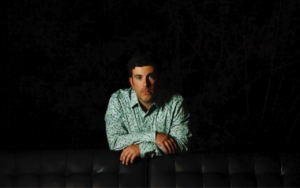
… you’re ready with these five things.
No, I’m not talking about a recording. Not a press quote. Not a marketing plan. Not a logo. Not a social media following.
This is about something else.
Right now I’m at Folk Alliance International, a conference in Montréal where thousands of musicians will each have a hundred conversations about their music. One thing is clear during these types of events: It’s easy to waste someone’s time — and once you do, your window of opportunity will close.
It’s true whether you’re asking someone in the industry for help or sitting in the barber’s chair and fumbling for the words when they ask “What kind of music do you make?”
Your barber might come to a show, or stream your music, or recommend you to their cousin who books acts for a local festival, but not if you waste their time.
Talking about your music might be a waste of time unless you have:
1. A unique description for your music
You don’t hesitate when someone asks your name, right? If your music is one of the most important aspects of your life, you should be able to unapologetically and succinctly describe it, the same way you’d tell someone your name. The more intriguing the descriptor, the better.
Know who you are! If you don’t, the other person will assume the worst.
2. Listening ears
No one likes a blowhard or a diva. And yet at conferences there’s always the person who comes up to you as if they’re doing YOU the favor. They talk and talk and talk and talk. They suck the air out of the room. You look for an escape, but your vision is blurring from oxygen deprivation.
I’ve never read the book, but my friend tells me there’s an anecdote in How to Win Friends and Influence People about a party where the most interesting person in the room is the guy who never says a thing about himself, but pays close attention and shows his intelligence by asking the right questions.
Keep your listening ears on. Don’t just wait for the next pause to submit more evidence about how awesome you are. Which brings us to…
3. One good question
Conversations rely on back-and-forth, and that means you’re going to need to get the OTHER person to open up. If you’re prepared for the conversation — for instance, if you want to talk to a particular festival or label or promoter — be ready with the most pressing question.
Strangely, ASKING demonstrates confidence.
If the conversation is more happenstance, just keep your listening ears on. The good questions will come.
4. A clear ambition
Stating your specific goals can be very helpful for the other person in the conversation. Then they can quickly determine if, how, and when they could help you.
One time I went out for drinks with a music manager. I wanted her to manage my band. But I didn’t know if she was considering it. At some point she asked what we wanted over the next 6 months. I hesitated. To book a national tour? To start recording our next record? Radio play? Umm….
We had a good chat, and stayed friends, but she didn’t manage my band.
5. Thick skin
Good friends can make bad music. People you’d never want to work with create amazing songs. And that’s just the shallow end of the pool. Networking, relationships, and favors in the music industry — weird waters.
When it comes to YOUR music, plenty of folks will be indifferent or worse. It doesn’t mean your music is bad. The Beatles were turned down by a surprising amount of labels before one finally said YES.
Keep going. Keep asking. Keep saying hi. Keep making friends.
Don’t be quiet. Be ready.
The tone of this article takes a severe stance. Of course I expect you to talk about your music, even if you’re not prepared with the five things listed above. My point isn’t to keep you silent. (Hell, I STILL struggle when someone asks me to describe my music.) It’s to encourage you to get prepared — so you can turn every conversation about your music into an opportunity. And hopefully every time we fail, we get a little better.

